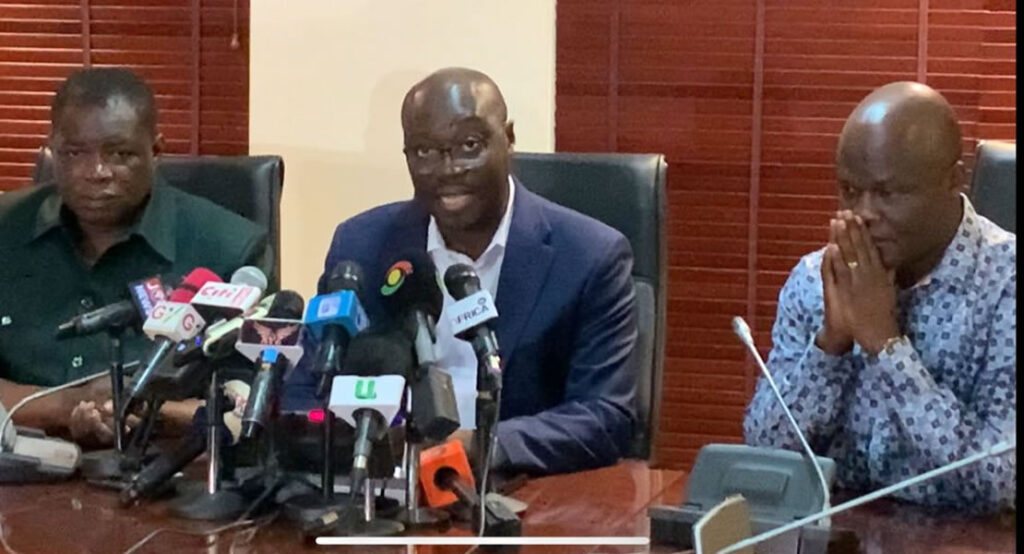The Minority in Parliament has lauded investigative journalist Manasseh Azure Awuni for uncovering the controversial Ghana Revenue Authority and Strategic Mobilization Ghana Limited (GRA-SML) revenue collection contract.
The Minority expressed appreciation for Manasseh’s work, citing it as evidence that ordinary Ghanaians cared deeply about the country.
Minority members pledged a commitment to transparency and announced their intention to delve further into the investigative work to unveil the truth behind the SML contract.
The investigative report, released on December 18, alleged that SML received government payments of approximately GH₵24 million monthly for services not rendered, despite claiming to save Ghana billions of cedis in the downstream petroleum sector.
The exposé by Manasseh triggered public outrage and calls for the immediate termination of the controversial contract.
The Minority caucus demanded the suspension of the deal pending a thorough parliamentary investigation.
Subsequently, Parliament issued a directive to the Ministry of Finance, ordering the suspension of all payments to SML for the 2024 fiscal year.
The decision came after the adoption of the Finance Committee’s Report on the annual estimates of other government obligations for the 2024 financial year.
The Committee underscored the necessity for parliamentary approval under Section 33 of the Public Financial Management Act, 2016, for multi-year commitments.
John Jinapor, Ranking Member of the Energy Committee and a Finance Committee member, emphasized the National Petroleum Authority’s capacity to ensure revenue assurance without external measures.
He confirmed, “We have had several meetings with the NPA, and I can confirm to you that the NPA has the technical know-how and the ability to ensure that there’s revenue assurance.”
Jinapor disclosed the existence of an Electronic Receipt Data Management System (ER DMS), which provides real-time data and is integrated with customer platforms, automatic tank gauging systems, and a bulk route vehicle tracking system.
He asserted that during discussions with the NPA, it was confirmed that there was no necessity for additional revenue assurance measures.
“When you look at the contract from the oil sector alone, Ghana produces about 16 million barrels of oil annually. If this company is to take $0.75 per barrel, it means that in one year, they are getting about US$45 million from the oil sector alone,” Jinapor explained.
He also pointed to potential earnings from the minerals sector, estimating a yearly revenue of $100 million, in addition to the monthly payments totaling nearly GH¢280 million.
The Minority’s stance aligns with the growing demand for transparency and accountability in financial agreements within the Ghanaian government.




